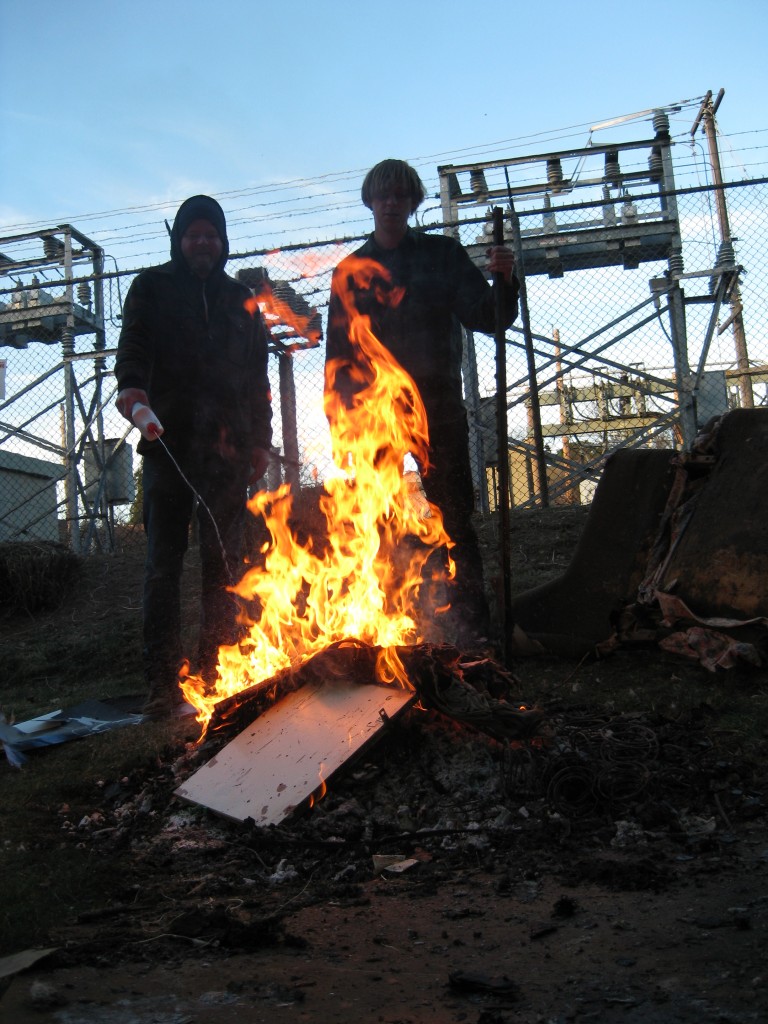Douglas Martin salutes you and the Sour Diesel.
As good as Eat Skull’s debut was, their sophomore record established them as one of the unsung heroes of America’s basement scene. Wild and Inside was not a tour-de-force, a head-first blitzkrieg like its predecessor, it was a unheralded classic. It was propulsive, it was eerie, it was triumphant. It was fucked up, but in a human way. It showed us ways out (“Cooking Up a Way to Be Happy”), it showed us to be optimistic (“Oregon Dreaming”). And what does the band do after they’ve released a show-stopper album with one of the greatest surf-punk almost-anthems of recent memory (“Heaven’s Stranger”)?
They disappear for four years.
I don’t need to tell you how long four years is. That’s a long time in regular, real-ass human time. On the internet, it almost feels like four decades. So how do you reconcile one of the greatest bands of the “shitgaze” era disappearing for the length of a presidential term? How does Eat Skull come back from a time where the Siltbreeze sound went from an intriguing new way to use low fidelity as a confrontational production technique to it now being the “rapping over the ‘C.R.E.A.M.’ beat” of underground indie-rock?
Well, that answer is a little easier than you might think. Eat Skull went to space.
Much like their peers and friends in Psychedelic Horseshit, Rob Enbom has decided a spacier, more electronic approach with III, Eat Skull’s first record since psychedelic, experimental garage-punk really blew up (sort of). And just like Matt Whitehurst, Eat Skull approaches things in a totally individual way. While Whitehurst was experimenting with trebly grooves indebted to bands like Black Dice and attacking chillwave head-first via songs called “I Hate the Beach,” Eat Skull take a more subtle (and, yes, weirder) approach to crafting their own space-rock album, even making way for acoustic guitars and pianos for lovelorn penultimate track “Amnesty Box.”
Even still, dance tracks(!) like “How Do I Know When to Say Good Night” shows Eat Skull trying their hand at a dance cut with their own skewed perception of what an Eat Skull dance track might sound like. And even outside of the dance realm, the band explores new territory, with crackling ballads like “Stupid Moon” and the dive-bombing celestial sounds of “Twin Sikk Moons,” approaching space-rock in a way that not even begins to belie their individuality and creativity.
Starting the album with “Space Academy,” the band very much set out to make the album sound like an adventure, completely with a chaotic and serrated guitar solo toward the end, only for the song to piece itself back together from the debris. Early album highlight “Dead Horses” is among one of the best songs Enbom was written to date, offering a pretty gruesome depiction of animal slaughter, right down to watching dead horses decompose “with taxidermy eyes.”
Their best foot forward, “Catch ‘Em Before They Vanish” is a little over five minutes of guitar squall and lantern-lighting guitar lines, with Enbom delivering sage advice such as, “You can burn all your bridges / Or you can buy brand new ones.” But the thing about “Catch ‘Em Before They Vanish” is it’s a song that sounds like a bunch of bridges burning, while the proprietor of them is in the middle, caught between wanting to mend them and not caring at all. And, as in life, when someone doesn’t make a decision, a decision is made for them, and the lightly growing embers lightly trace the ground as the song ends.
In Eat Skull’s heroic return from space, they’ve shown that they can create a cohesive piece of work, with one song easily flowing into the next without disrupting the flow with a confrontational punk throw-down or a slow-burning instrumental. And they did so without reverting to their old tricks, mining completely new territory and finding a completely different space to flourish as a band. And it just so happened that the space used to flourish was space itself.
Stream:


